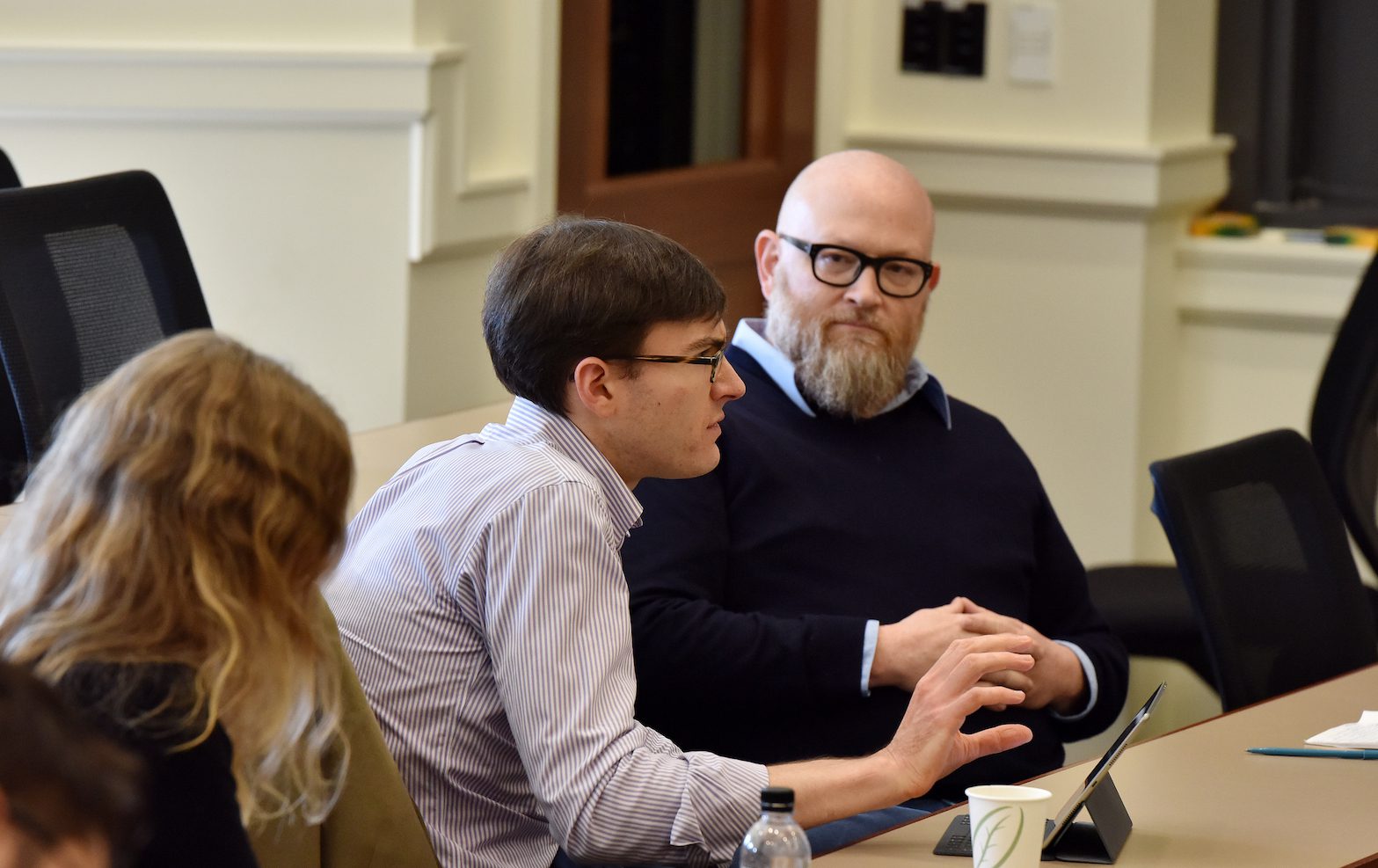Scholars from across the humanities and social sciences convened for the Gauss Seminar “Hegel and the Humanities,” on September 29, 2017. With nine short talks representing different approaches to Hegel and his legacy, the symposium generated lively multidisciplinary interchange, with extended discussion periods in each of three panels.

Participants at the Gauss Seminar which took place on September 29 included: Chad Wellmon (University of Virginia, top row); Russell Sbriglia (Seton Hall University, center left); Daniela Gandorfer (Princeton University, center right); Anjuli Raza Kolb (Williams College, front row)
Presenters offered perspectives on aspects of Hegel’s thought from philosophy, political science, literary studies, religious studies, queer studies, feminism, Marxism, post-colonial studies, and math. A few emphases emerged: the place of Hegelian thought in questions of discipline, Hegel’s role in modern literary criticism, and Hegel’s complex legacy for political theory. As a whole, the day demonstrated the continuing importance and challenge of Hegel’s thought.

Guest speakers: Jeremy M. Glick (Hunter College), Katrin Pahl (John Hopkins University), Robyn Marasco (Hunter College) and John Park (Princeton University)
Named in honor of Dean Christian Gauss, The Gauss Seminars in Criticism were instituted in 1949 to provide a focus for discussion, study, and the exchange of ideas in the humanities.
















